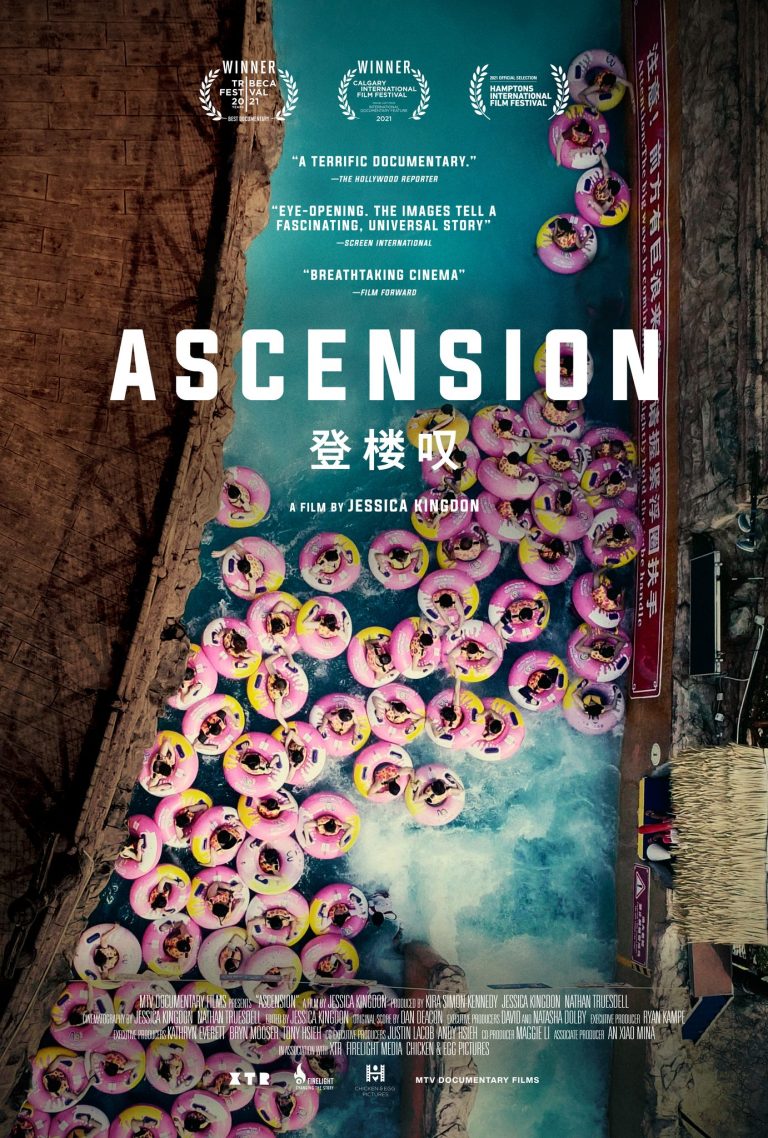
Class structures exist in every society, and their gradual dissolution is often considered a hallmark of productive evolution and modernization. But no matter how much equality is achieved and how much the playing field might be figuratively leveled, there will still be those with tremendous means that exert an unbelievable power over those who have little or nothing. A common feature across all of civilization, both now and throughout history, has been the striving for more and to achieve an elevation to the next rung. Ascension presents an incisive look at the “Chinese dream,” an inherently contradictory phenomenon.
Ascension divides its content into three interwoven spotlights: working class, middle class, and elite. Factory workers are sought out based on specific qualifications, with limitations on their ages, descriptions of whether they will be required to stand or permitted to sit, and restrictions on whether they can bring their own cell phones in with them to work. Those who sell those products and others have to determine the best strategies to appeal to prospective buyers and to market them in an alluring way. And those who have reached the upper echelon must remain in step with the fanciest customs, ensuring that they are never exposed as unfamiliar and potentially not belonging to the status where they find themselves.

Considering the concept of the Chinese dream cannot be done without comparing it to the American dream, in part because of the way in which the two are inherently related. The systems of government and the community structures within the two countries are radically different, both politically and socially. The Chinese Communist Party projects an image of success based on adherence to a particular worldview and no dissension from it, while in reality the circumstances of all are not remotely equivalent. There are no such pretenses made in America, though people who have never known true adversity often mistakenly assert that hard work and perseverance can catapult anyone to the top.
There have been several documentaries in recent years that have directly contrasted the ways in which the United States and China operate and highlighted surprising similarities between the two. American Factory examined how Chinese ownership of a car plant in Ohio succeeded and also failed because of stark differences in laws and commonly acceptable behavior. In the Same Breath looked at the responses of the American and Chinese governments to the outbreak of the COVID-19 pandemic and how liberties are interpreted in each context. The overarching takeaway: governments and politicians have their ways of doing things, but people have natural desires and tendencies that can’t be entirely stifled or shaped by how they are told to behave.

Ascension might be best described as an experimental documentary in that it does not feature a straightforward narrative and is instead composed of many connected shots. There is no particular sequence to their assembly, which in itself serves to describe the potential for fluidity among the various stages of success that can just as easily go back downwards as it can ascend higher. Its title references a poem written in 1912 by filmmaker Jessica Kingdon’s great-grandfather following the fall of the Qing empire, predicting what was about to happen to China and predating the rise of Communism three decades later.
This documentary manages to capture an idea that is at the same time definitive of a nation and fleeting, capable of exerting immense power over individuals seeking to be a part of the collective. Rather than establish a thesis that can be proven and defended with intellectual argument or specific testimony, Kingdon opts for a series of scenes that show her point in action, tracking a “rat race” that is infinite and circular, since the highest class will inevitably be replaced by a new tier whose subscribers look down upon those they’ve left behind. There is plenty to ponder here in this dizzying collection of frames, one that, at its most coherent, illustrates the human need to be working for something greater, even if it can never be truly attained.
Grade: B
Check out more of Abe Friedtanzer’s Review.
Ascension is on the shortlist for this year’s Best Documentary category at the Oscars and is streaming on Paramount+.

